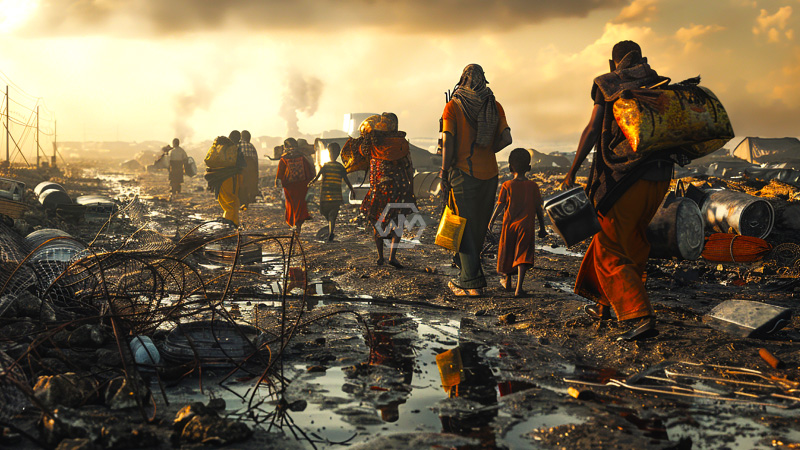- Israeli airstrikes continue across Lebanon, targeting Hezbollah strongholds.
- Hezbollah claims to have killed or injured over 20 Israeli soldiers in ambushes.
- Thousands of civilians displaced, health infrastructure severely impacted.
The conflict between Israel and Hezbollah has reached a critical point, with Israeli forces intensifying their airstrikes across Lebanon.
Significant damage has been reported in Beirut’s southern suburbs, and key Hezbollah figures have been targeted. Hezbollah retaliated with ambushes along the border, claiming they killed or injured more than 20 Israeli soldiers.
Hezbollah’s Retaliation and Israeli Airstrikes Deepen Lebanon’s Crisis
Iran has thrown its support behind Hezbollah, calling for a united response from Muslim nations. Tehran has justified its missile attacks on Israel, stating that it is defending itself in the context of Israeli aggressions. The escalating regional conflict is drawing international attention, with countries evacuating their citizens from the volatile zone and a humanitarian crisis deepening due to attacks on civilian infrastructure.
Hezbollah has also been carrying out ground offensives, ambushing Israeli forces attempting to cross the Lebanese border. In one such incident, more than 20 Israeli soldiers were reportedly killed or wounded. The militant group continues to engage in artillery exchanges with Israeli forces stationed along the border, highlighting the scale of the ongoing battle.
Iran has been vocal in its support of Hezbollah and Hamas, framing their actions as legitimate resistance to Israeli occupation. Ayatollah Khamenei has called for Muslim unity in the face of Israeli aggression, while Iran continues to provide material and ideological support to its regional allies. The broader regional dynamic is shifting, as the conflict threatens to engulf more territories.
The humanitarian toll is mounting, with thousands of Lebanese displaced and key infrastructure, including hospitals, destroyed. International organizations have raised concerns about the destruction of medical centers, with many hospitals now unable to function. The World Health Organization reported that health workers are among the casualties as the conflict further strains Lebanon’s already fragile systems.
As the conflict deepens, the region is becoming increasingly unstable, with the potential for further escalation involving neighboring countries. Diplomatic efforts may soon become critical in averting a full-scale regional war.
“In times of war, truth is the first casualty.” – Aeschylus



